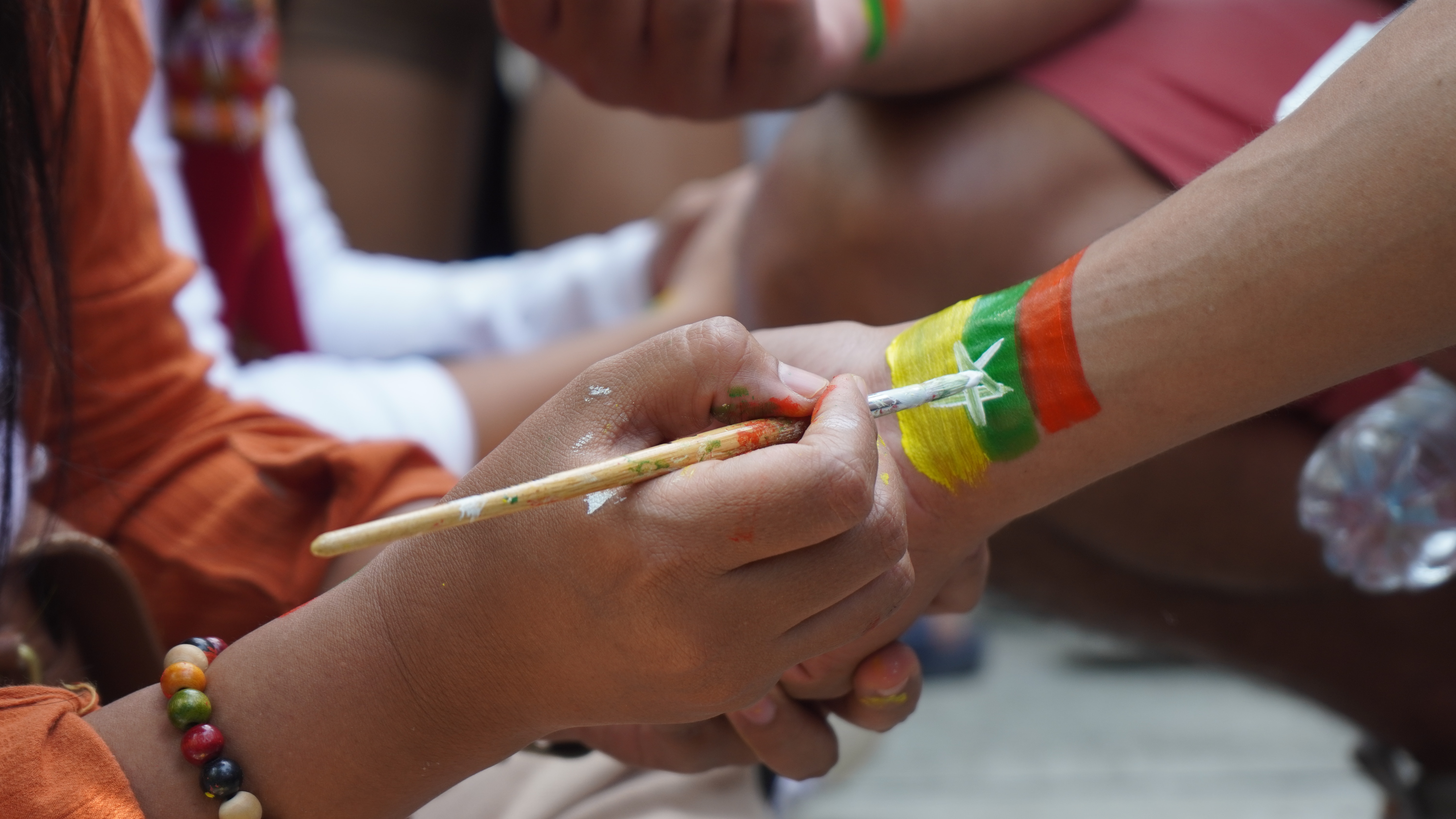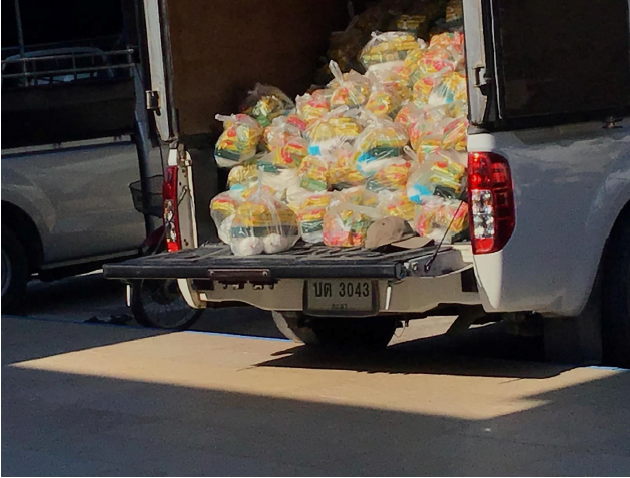As an increasingly critical conflict actor, business investment interacts with economic and personal security ecology in the locality where it operates with gendered manifestations and implications. In Cambodia, the resistance of the indigenous Kuy Women in Prame Commune in Preah Vihear Province to commercial land-grabbing demonstrates how the business-conflict nexus unfolds understudied gendered facets in the ways local women exercise their agency in investment-induced conflict and redefine security and gender roles in the community writes Peixuan Xie.
_______________________________________________
When the local women stood before their husbands, fathers, and sons in front of the bulldozers to stop the rumbling machines clearing their sacred and subsistence land for commercial plantation, the decade-long clashes between the Chinese Hengfu Group and a Kuy indigenous village in Preah Vihear province in Cambodia revealed the much under-explored nexus of business, local conflict, and gendered security at a crossroads.
The business sector rises in non-conflict environments as much as in fragile and conflict-affected settings as a major actor in the architecture of conflict, peace, and security by causing dispute and fostering cohesion in the locality. The interactions of business, conflict and security also have their gendered facets. They reshape the peace ecology of the local community for the immediate and profound impacts its operations have on the survival, well-being, and livelihood of the people, including women.
Traditional security logics identify referents to be secured and agents to provide security. In practice, women are often assigned the role of the ‘to-be-secured’ and men the ‘securing’ in political and business-caused conflicts alike. Cambodian indigenous women’s engagement in conflict with private companies and local authorities, however, proves that this fixed frame of analysis effectively blurs the questions of the feminist meaning of security, who secures security in what ways, and who’s security gets most attention on micro levels.
The continued strong influx of Chinese foreign direct investment (FDI) into Cambodia has been under the spotlight for the controversies around mass land-grabbing for business use that came in tandem. Cambodia’s investment-favouring Economic Land Concession (ELCs) mechanism umbrellas the land-grabs. The Sub-Decree Number.146 on Economic Land Concessions legitimates the granting of private state land to a concessionaire for industrial-agricultural use. It is flaunted by the government as a strong drive to attract FDIs into Cambodia’s agro-industry to breed economic growth. Among others, the concession obtained by the Guangdong-based Hengfu Group Sugar Industry (Hengfu) in 2011 in Preah Vihear province has inflicted most controversy for the conflict it has entered with nearby communities. Operating with its five subsidiaries, Hengfu was granted around a total of 40,000 hectares of land for sugarcane farming in the Chheb, Chey Sen, and Tbeng Meanchey districts of the province.
Indeed, ELCs are state-owned land. Nonetheless, frequently located therein are indigenous people’s houses, ancestral pastureland, farmland, water supplies, and spiritual forests. In Cambodian law, indigenous groups seldom own their hereditary land. It is legally possible for them to acquire collective land titles, but the registration level is limited to individual village and the type to cultivated land, residential land, spirit forests, burial forests, and land reserved for future expansion of agriculture.
The Chheb, Chey Sen, and Tbeing Meanchey districts house Cambodia’s indigenous Kuy people. Animists as well as subsistence farmer, the Kuys place great importance on their land, forests, and natural resources for survival and equally for ritual ceremonies. In Prame commune of Tbeng Meanchey district, the communities in three villages submitted their initial applications as early as 2009. But up till 2020, they are still waiting for authorities to accept preliminary maps of their community territories. The vacuum remained till the granting of the ELC contract to the Hengfu groups in 2011. Since, the Prame village has been reported to come into frequent frays with the sugar companies over land-grabbing, eviction, loss of food and livelihood, water contamination and other adverse impacts on their economic and everyday life. Protests, blockages, confrontations and physical clashes between villagers, local authorities and the companies have stirred the communal peace into turbulence.
A field-study carried out by the author in 2019 found that central to the hostilities is the leadership and active participation of the Kuy women. The women were on the front line of planning, executing, and rewinding the indefatigable protests, standoffs, blocking and seizure of bulldozers, and direct fights with the companies and local authority security forces. Villagers also testified that women organised and carried out prolonged sit-ins in the provincial hall and the recurring petitions to the Chinese embassy, UN human rights bodies and international community in the country. Specific to the Kuy beliefs, women even led a praying ceremony for the bankruptcy of the companies. That village women are at both the front-line and centre of resistance reveals a highly gendered picture of the conflict and women’s agency in securing their security. There are cultural, gender and socioeconomic grounds for their leading status.
The gate-keeper of the Kuy spiritual world of the Prame village is a female ritual leader. Responsible for leading the spiritual activities and bridging people with the spirits, she is seen to propagate the Kuy beliefs to guard the communal unity and solidarity. According to female villagers, the prestigious spiritual status of the leader in holding the community together has facilitated how women are regarded in the Kuy perceptions as good at communication, networking, and negotiation, a trait highly applicable for their brawl.
Initially, men were involved equally in the planning and delivery of protests. Nonetheless, the male villagers frequently found themselves the constant targets of physical attacks, violence, and arrests when push became shove. The Prame women soon realised that due to their identity as female and thus as the ones perceived weak and physically nonthreatening, authorities and company security forces were less likely to arrest or physically assault them while men could be significantly hurt in the same situations. Women thus rapidly exploited the advantage of their “weaker gender” and took over the traditionally highly masculine task of “fighting”, while their husbands took care of the house.
Kuy women’s turning to hard resistance also illuminates the linkage between imbalanced gender relations and security. Notwithstanding their important role in the spiritual sphere, in traditional Kuy societies, women are still marginalized in economic, political and public life. The Kuys are not historically a migration-prone group, and for Kuy women, forests and non-timber forest product such as rattan, firewood, and resin are the main source of income. Their economic viability is thus highly land-dependent, compared to village men who could sell their labour seasonally elsewhere. One woman pointed out the common dilemma: “as women our land is the only thing we have. Nobody will fight for the land of the women apart from women themselves. If we lose our land, we will then have nothing, thus we’ve really got nothing to lose. We’d give our all to fight for it.”
The role reassignment has weighty impacts on the power reassignment in households and in community life. The females, once mainly responsible for food and forest products, and domestic work, turned their socioeconomic disadvantages and perceived weakness into a powerful string of strength in securing their land and the Kuy living. In Prame village, women, especially those heading the fights, are now considered as guardians of the Kuys and important referents in community decision-making.
Cambodian indigenous women taking on land-based conflict and safeguarding community security proves vividly that women are important and innovative contributors with agency beyond being passive victims of violence and pacifist peacemakers in local, non-traditional security affairs as much as in international security. Inclusive security studies should also shed further lights on the connections of business, local, everyday peace and conflict, and gendered security.
*Banner photo by Angkor Feel on Unsplash
* The views expressed in the blog are those of the authors alone. They do not reflect the position of the Saw Swee Hock Southeast Asia Centre, nor that of the London School of Economics and Political Science.





